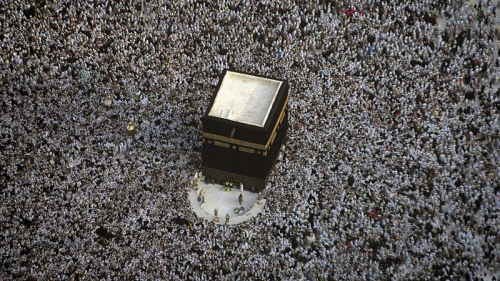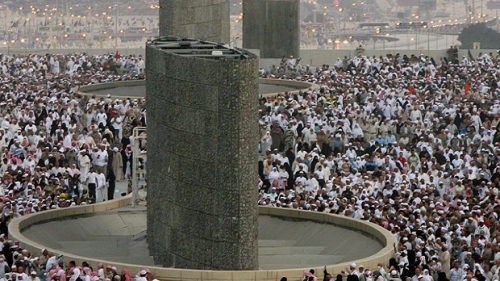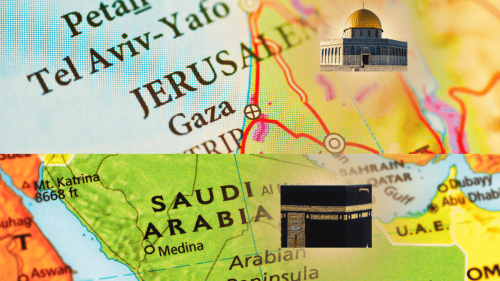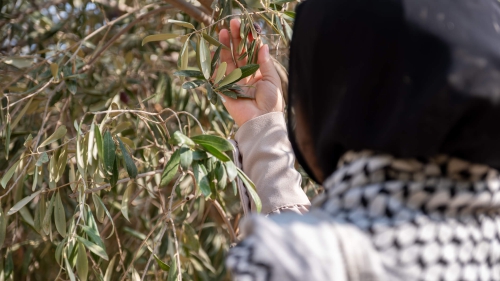Health trumps faith differences at Muslim clinic

It grew out of the 1992 riots, a vision by a small group of Muslim medical students to bring charitable, high-quality healthcare to the needy residents of South Los Angeles.
Eleven years later, the UMMA clinic on Florence Avenue has served nearly 20,000 patients, the great majority of them non-Muslim. It has become a mainstay of its largely low-income neighborhood, sponsoring blood drives, literacy promotions and even tax return workshops, along with its medical services.
And in an era when Middle Eastern conflicts and terrorist attacks have often brought uncomfortable attention to America's Muslim communities, the clinic has become a source of considerable pride for Muslims in Southern California and nationwide.
"We believe this is really Islam at its best," said Shakeel Syed, executive director of the Islamic Shura Council of Southern California, an umbrella group for the region's mosques. "We are very proud of those who started UMMA and those who are continuing the work there."
Its cheerful waiting area decorated with translated Koranic texts and colorful children's drawings, the clinic has become a national model. Muslim groups in at least half a dozen cities, including San Bernardino, have sought guidance from UMMA's founders in starting their own such efforts.
UMMA was started by about half a dozen medical and public health students at UCLA, many of whom had been active in the university's Muslim Student Assn. That organization also has started programs to tutor youths at juvenile detention centers and inner-city schools.
Even before the riots left large sections of South Los Angeles devastated, the students had talked among themselves and with professors about starting a clinic, or at least a mobile healthcare unit that would circulate through low-income areas of the city to offer blood pressure exams and other services.
But after the riots, "we saw that there was such a huge need in South L.A.," said Rushdi Abdul Cader, a clinic co-founder who was then just beginning his training as an emergency room physician. "It also was such a time of intolerance, with the city literally on fire.
"We wanted to do something to help, and also to start something that would promote better relations between people."
The founders, who also included Abdul Cader's wife, Nisha, now a pediatrician, were motivated by their Islamic faith, and by what they described as Prophet Muhammad's call to try to correct whatever one finds wrong in the world.
"If you see something that isn't right, there is an obligation in Islam to try to fix it with your own hands, first of all," said Yasser Aman, who started at the clinic as a volunteer while studying at UCLA and is now its president and chief executive. "That's the highest good."
The students, most of them American-born and of Middle Eastern or Southeast Asian heritage, launched their efforts by making cold calls to medical supply companies. Within a year, they had collected more than $150,000 worth of donated equipment and supplies, including EKG machines, computers and examination tables.
"We were storing all this stuff in our parents' garages," said Rushdi Abdul Cader, who now works as an emergency care physician in San Luis Obispo but remains on the clinic's advisory board.
Impressed with the students' savvy and commitment, former Los Angeles City Councilwoman Rita Walters encouraged them to consider a standing clinic instead of a mobile medical unit. Walters helped them obtain a $700,000 grant from federal housing authorities, which they used to renovate an abandoned auto repair shop at 711 W. Florence Ave. into a spotless facility, with a dispensary, lab, waiting area and six exam rooms.
The clinic opened its doors in September 1996 with an initial, two-year operating grant of $680,000 from the city that the fledgling, largely volunteer staff managed to stretch over the next four years. Since then, it has been funded by a combination of donations, grants and state and county reimbursements for indigent care.
Its name, UMMA, comes from the initials of the organization that runs it, the University Muslim Medical Assn. But the name also comes from the Arabic word "ummah," which means community.
From its earliest days, the clinic has been a model of interfaith cooperation, according to those involved. For instance, the man several of the founders described as their faculty mentor during their UCLA years, former UCLA professor Dr. Richard Usatine, jokes that he was the "Jewish advisor to their Muslim organization."
"I was thrilled to be asked because of my beliefs in the importance of people getting along in the world, and of collaboration as a way to increase understanding," said Usatine, now a professor of family medicine at the University of Texas Health Science Center at San Antonio. "It was a real gem of an opportunity for me to be asked ...to be valued and to be asked."
A majority of the clinic's board remains Muslim, but most of its staff members are non-Muslim, drawn from the community the clinic serves. Medical Director Dr. Steven Murphy is Roman Catholic.
Of the patients UMMA serves, about 98% are non-Muslim; about 70% are Latino and about 25% are African American, with the rest being Caucasian and Asian.
In the clinic's early days, its founders said they were occasionally turned down in their efforts to raise money from the Muslim community, which was more inclined to support mosques and other institutions providing care directly to Muslims.
That is no longer the case. In 2000, when the clinic was briefly threatened with closure as its initial funding was running out, Southern California Muslims stepped up to keep it open, raising more than $300,000 in a single night, Aman said. They did the same in 2006, raising more than $384,000 at a celebration marking the facility's 10th anniversary.
Now, as the clinic matures and many of its founders step back from active involvement, it faces a new challenge, Aman said: How to maintain its Muslim identity even as it expands and seeks federal funding as part of its recent designation as a federally qualified health center.
The federal designation, achieved in 2006, comes with its own requirements, including the inclusion of patients on the clinic's board. But Aman said the board hopes that a majority of its members, if possible, will continue to be drawn from the Muslim community.
Said Murphy, the clinic's medical director: "It's a place to give and receive blessings, regardless of faith."
Topics: Health, Iman (Faith And Belief), Ummah (Community)
Views: 3803
Related Suggestions

















